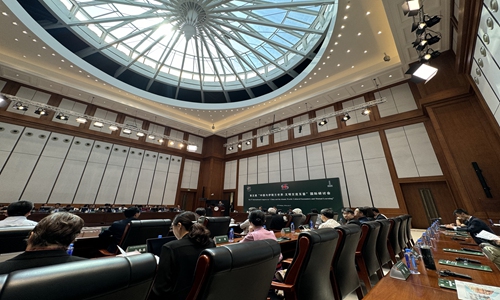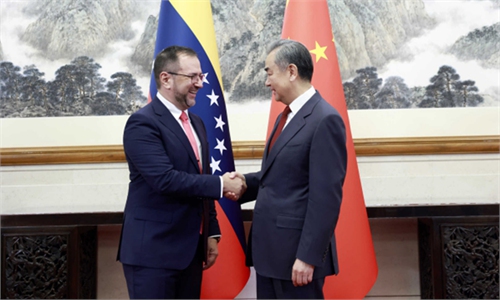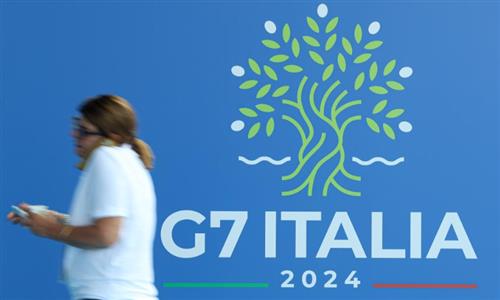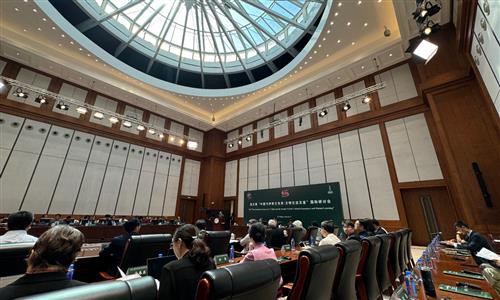China's cultural exchange with Islamic countries promotes stability and development in Global South

Attendees during meeting at the 5th International Congress on "China and the Islamic World: Cultural Encounters and Mutual Learning" held in Beijing on June 26, 2024 Photo: Bi Mengying/GT
The 5th International Congress on "China and the Islamic World: Cultural Encounters and Mutual Learning" commenced in Beijing on Wednesday, attracting experts and scholars specializing in Islamic history, art, and culture from both domestic and international backgrounds.
Special Envoy Zhai Jun of the Chinese Government on Middle East Issues noted in his speech during the opening ceremony that Islamic civilization has made significant contributions to world civilization. He emphasized that China advocates strengthening dialogue and exchanges among different civilizations and religions, rejecting discrimination and prejudice against specific civilizations and religions. China is against all forms of Islamophobia.
Many participating experts shared the consensus that the current global landscape is rapidly evolving towards a multipolar order. Represented by China and Islamic countries, the Global South is emerging as a key force for reforming the international order.
"Strengthening civilizational exchanges and mutual learning between China and Islamic countries is crucial for promoting the stability and development of the Global South, as well as for advancing the prosperity and progress of different civilizations across the world," said Zhao Zhimin, secretary-general of the Chinese Academy of Social Sciences (CASS).
China and the Muslim world, two major civilizations that played formative roles in the cultural history of humanity, have also mutually influenced each other in various areas, pointed out Mahmud Erol Kılıç, Director General of the Research Centre for Islamic History, Art, and Culture (IRCICA).
"Studying their encounters highlights a rich segment of the cultural heritage of humanity. With this understanding, a comprehensive scope has been adopted for this congress in order to accommodate a variety of aspects of relations between the two worlds," he added.
The two-day event is being held at the Chinese Academy of History, one of the country's top institutions of historical research, which was established in January 2019.



